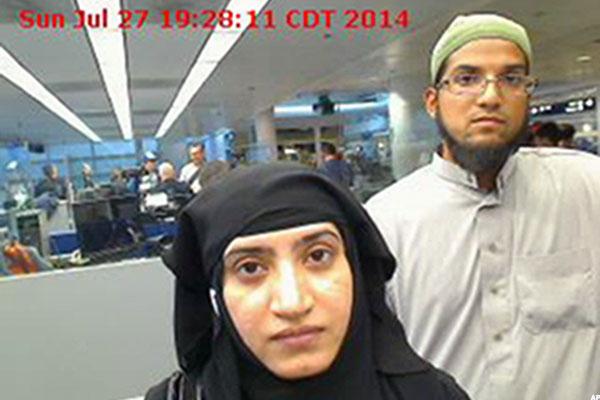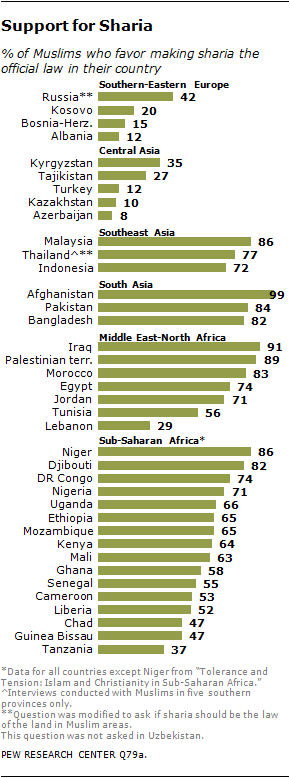"Why can't we talk about Islam honestly," asks David Harsanyi in a very thoughtful, yet brief, essay worth reading in its entirety.
Islam is not a race. Islam is not an ethnicity. Islam is a religion and a political philosophy. And it is distinct from other religions and political philosophies.
Pointing this fact out does not make a person obsessed with hatred or racism.
Arguing that "the left is trying to chill another debate with frivolous accusations of racism," Harsanyi asserts that "Islam does not deserve special immunity from criticism" any more than any other religion.
The irony is that Harsanyi penned the essay on November 25, 2015, one week before Syed Rizwan Farook and Tashfeen Malik murdered 14 people and injured 21 others in San Bernadino, California, in an Islamic-inspired terrorist attack. Since then, most people have been talking about Islam with more fear than honesty.
The vast majority of Americans have no experience with a theocracy. We can't fathom a political system dictated by religious texts and dogma. America and Western cultures draw a unique line between the sacred (our religious beliefs) and the secular (our political governance and systems). Americans could never imagine throwing out the Constitution and the Bill of Rights as the law of the land and substituting in their place, say, the Christian Bible and Christian dogma.
Yet Islam is purely theocratic – at once both a religion and a political philosophy of governance, called Sharia law, built upon the dictates of the Koran and religious dogma. Its devout believers understand that. We do not.
In discussing Islam as a religion only, most Americans tend toward tolerance and inclusivity. In discussing Islam as a political governance philosophy, however, most Americans would reject it absolutely.
That's the dilemma for Americans in talking about Islam. Islam appears to be the only major world religion in which the more devout in faith believers become, the more politically radicalized they become and the more they hate all things Western.
Liberals often ask "why they hate us so." The simple answer is that their hatred isn't personal; it's political. They hate the Western form of secular governance and Westerners' devotion to it.
In its 2013 study of the world's Muslims, the Pew Research Center found that "Muslims who pray more frequently are more likely to favor Sharia as the law of the Land," and huge majorities of Muslims around the world support making Sharia law the official governing law of their countries (see Pew graphic).
Yet Sharia Law is utterly incompatible with Western law generally and American constitutional law specifically. The two have absolutely no ground for compromise. Those steeped in radicalized Islamic Sharia Law cannot tolerate Western-style governance. Should Americans be surprised, then, that Tashfeen Malik brought a radical political hatred of the West with her from her native Pakistan, a nation in which 84% of Muslim's favor Sharia law as the official law of governance?
A recent YouGov poll found that most Americans (58%) view Islam unfavorably. That isn't an expression of religious bigotry; it's an expression of philosophical prejudice. As Harsanyi puts it, "It's hardly un-American to believe that the foundation values of your society are preferable to the ones that make Yemen or Iran or Pakistan possible."
Americans can't shake the worry that to welcome devout believers of Islam into the U.S. – in large numbers and without exceedingly careful screening of their political views – represents a serious and dangerous threat to our own beliefs, our own religions, our own secular political system, and our Western way of life.
That the House of Representatives voted 407-19 this week to tighten visa waiver restrictions is a step toward alleviating American fears. This strongly bi-partisan legislation would prevent foreign citizens who have visited Iraq, Iran, Syria and other countries in the past five years from entering the U.S. without a visa (and the screening that is required with it).
Perhaps the answer to Harsanyi's question is that we can't talk about Islam honestly. Not, at least, until Islam's believers themselves find a way to separate the sacred from the secular, and the religious from the political.
Unless and until that happens, Americans have very justifiable reasons to insist that American policymakers focus exclusively on the secular, political philosophy of Muslims in making public policy decisions for our nation, and leave the religious aspects out of the discussion altogether.
Sources:
Why Can't We Talk About Islam Honestly, David Harsanyi, the federalist.com
The World's Muslims: Religion, Politics and Society, Pew Research Center
Most Americans Dislike Islam, YouGov.com
In Wake of Paris Attacks, House Votes to Tighten Controls on Visa-Free Travel to US, Fox News



